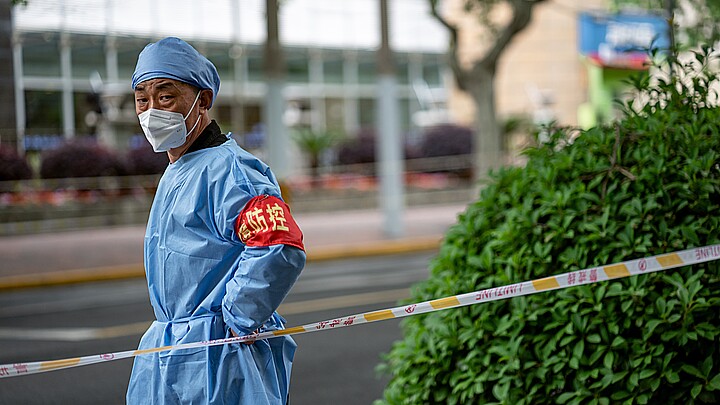Coronavirus
Suicide rates among Chinese young people spike amid Xi’s harsh lockdowns
Chinese President Xi Jinping’s zero-COVID-19 policy of harsh lockdowns and regular mass testing is taking a toll on the country’s young people mental health, according to experts and emerging research
June 28, 2022 8:00am
Updated: June 28, 2022 9:51am
Chinese President Xi Jinping’s zero-COVID-19 policy of harsh lockdowns and regular mass testing is taking a toll on the country’s young people mental health, according to experts and emerging research.
Xu Kaiwei, a Chinese psychiatrist, told a Chinese medical news site that the suicide rate among youth doubled or even tripled during the pandemic, The Times of London reported on Monday.
“There’s at least one consensus: the pandemic has caused a great blow to mental health,” Xu said. “It’s certain that it would have strong negative effects on people’s mental health when residential compounds are sealed and people’s lives are disrupted.”
“It’s the basis of mental health to be able to move around unrestricted, have normal work and intimate relations, but the pandemic has destroyed them all.”
The building mental health crisis is a contrast to the many observable consequences of China’s hardline COVID-19 policies, like snarled supply chains, rare public protests, and the re-emergence of the Chinese Communist Party’s no. 2 on a pro-economy message.
In the first national survey on psychological distress from the COVID-19 epidemic in China, from 2020, 35% of the more than 52,000 respondents reported experiencing distress, including anxiety and depression.
The most vulnerable groups were the young, elderly, women and migrant workers, according to the survey’s lead researcher, Qiu Jianyin of Shanghai Mental Health Center.
Yu Lingna, a Chinese psychologist who runs a counselling service for those affected by the pandemic, said there was marked anxiety even among groups with little to worry about from the virus, like young people.
“They worry about shortages of essentials, living conditions in makeshift quarantine hospitals, children under quarantine alone, pets left behind after owners are sent to quarantine venues, as well as financial pressure from decreased incomes,” Lingna told the South China Morning Post.
In a June 11 editorial, medical journal The Lancet drew attention to the “huge human cost” of the government’s COVID strategy.
“This cost will continue to be paid in the future, with the shadow of mental ill-health adversely affecting China's culture and economy for years to come,” they wrote.
“The Chinese Government must act immediately if it is to heal the wound its extreme policies have inflicted on the Chinese people.







